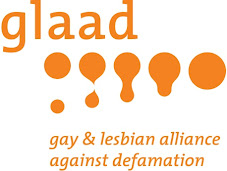That was the subject of a lively panel that just wrapped at the Queer Lounge. Guests included Participant Productions' Ricky Strauss, Current TV's Saskia Wilson-Brown, Killer Films' Christine Vachon, Live Earth's Kit Hawkins and Amy Berg, and our own Neil Giuliano, president of GLAAD.
When asked by moderator Sean Smith, Entertainment Weekly senior editor, "What film changed you?" Ricky recounted a story about when he worked at Tri-Star, a studio famous for Rambo and Terminator, and how impressed he was that his studio would even undertake a film as socially-relevant as Philadelphia. Neil recounted that Making Love was seminal for him, and Christine Vachon told the crowd that she was a P.A. on Parting Glances in her early 20s, and "It was the first film I had ever seen that took place in a gay world after everyone had already came out."
"What's interesting to note is how powerful the medium is to affect audiences," said Ricky, telling the story about how an episode of Happy Days led to a spike in library cards. "It's amazing how impressionable people are." Still it's difficult to measure social change, but one only has to look at how Participant's An Inconvenient Truth has created global awareness to climate change. "Any one who debates climate change now looks like an asshole," he pointed out.
Getting your message out now is a lot easier, everyone on the panel agreed. The online world has allowed any one to distribute and get their message out. "In the '60s people took to the streets, now people take to the computer," said Ricky. (Ironically, a fur protest was happening on Main Street outside the Queer Lounge at that very time.)
Filmmaker Chuck Griffith was in attendance and wondered if now that there are gay-centric film distributors and networks, if the major studios will pass on gay-themed films entirely. "It's incumbant on all of us to make sure that doesn't happen," said Neil.
Want to know how Christine Vachon thinks gay films have changed since the 1990s? Watch this video clip from the panel:
Subscribe to:
Post Comments (Atom)

No comments:
Post a Comment